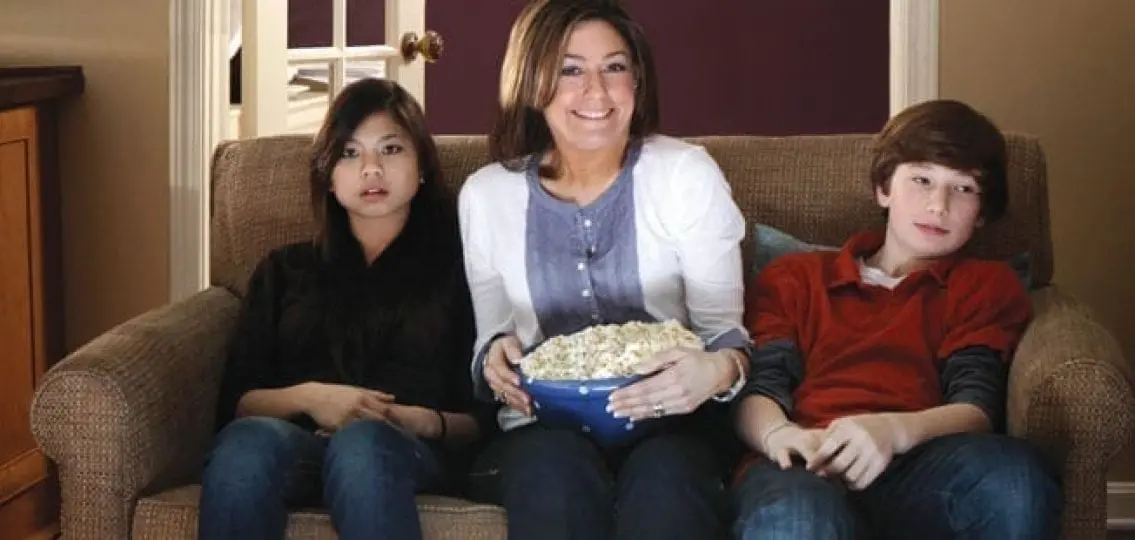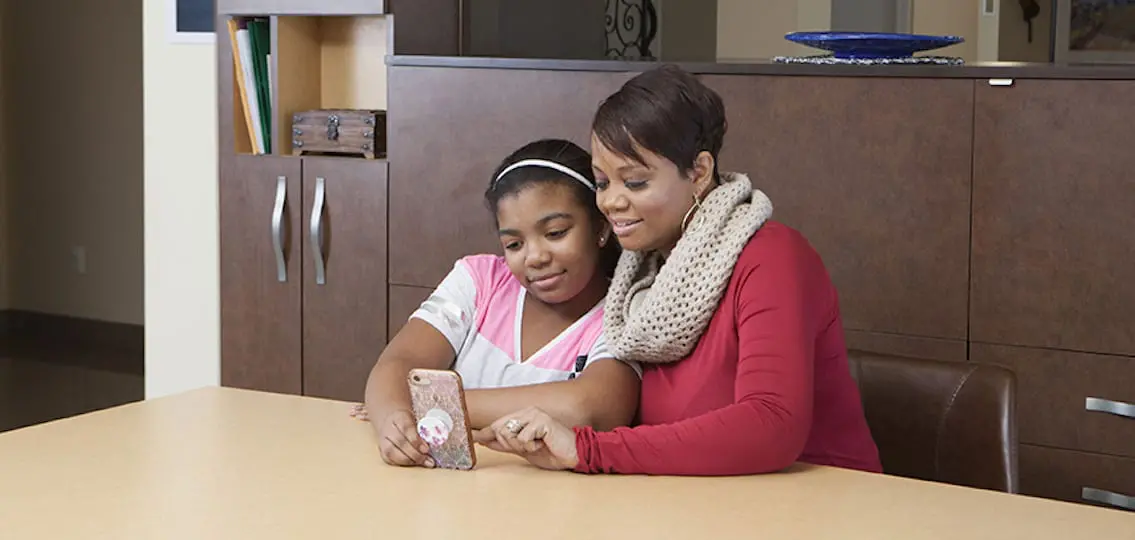We know it’s important to talk about sex with our kids, but it’s not always an easy conversation to have. Dr. Scott Frank answers questions about how to have the conversation.

Q: How should a parent approach the topic of sex/sexuality?
Frank: Any awkward topic should be addressed in context. These discussions are much less anxiety provoking and embarrassing when there is a clear reason for the conversation. The trick of effective parenting is being able to engineer context to allow the conversation to occur. Being open in discussions about such issues involving friends or other family members, even from a young age, gives the child a sense of reassurance that the topics are not taboo. Both the parent and the child are given permission to raise the issue at a personal level when the context of the discussion opens the door.
Q: How do you start the conversation about sex?
Frank: As related previously, in context. That is, when the topic of sex comes up, or could come up, as a result of what is happening naturally in the environment, shifting the emphasis to a more personal level. Because sexual references are ubiquitous in our society, these opportunities are plentiful. While it is ideal for it to come up in this spontaneous way, what you plan to say should be planned out ahead of time.
Q: What should parents say to their children?
Frank: The emphasis of parent-teen communication about sex should focus on the ABCD’s: Abstinence is the only 100 percent effective way to avoid unplanned pregnancy and sexually transmitted infection; Be faithful in relationships and monogamous if you do have sex; Condoms and Contraception are necessary if you do become sexually active; and, Discussion with an adult about safe sex—your parent, your doctor, and/or a counselor will increase the likelihood that you will not be harmed by your decision.
Q: Can we give the talk about sex too much?
The “too much” issue relates to the myth that talking about sex with teens is tacit permission to begin having sex. There is no evidence that this is true. Talk when it comes up in context. It will not be too much.
Q: What cues do kids give that indicate a parent should be talking?
Frank: The most important cue occurs when a teen enters a boyfriend or girlfriend relationship. Other cues may relate to an increasing need for privacy, increasing attention to social approval, or an increased amount of time spent texting and social networking. As a physician, I believe that sex is an activity that is best initiated with an adult mind and an adult level of maturity. Though I discourage teen sex, this issue pales when compared to teen pregnancy and sexually transmitted infections. Teens must have an adult communicate in clear language that having sex requires responsible use of protection for both prevention of pregnancy (birth control) and sexually transmitted infections (condoms).
If parents aren’t comfortable with this discussion, they need to find someone–often their doctor–who is. For the teen that is considering sex but uncomfortable talking with a parent, they should find an excuse to see their doctor. Whatever the presenting concern (headache, acne, menstrual cramps), the doctor should find private time with the teen when issues about safe initiation of sex can be discussed confidentially. Teens have this right to a confidential relationship with a doctor, even when parents are paying the tab.
Q: Instead of dating, kids today seem to “hook up.” What does that mean for parenting?
Frank: “Hooking up” can be used to describe anything from a simple meeting or making out to having sex. In fact, one reason it may be so widely used is its ambiguity. Teens can often understand the intent from non-verbal cues or from other language that surrounds the invitation. For many teens, hooking up keeps their options open without requiring any commitment, while simultaneously confusing their parents. One thing seems pretty certain: hooking up is less about developing a relationship. Unfortunately, that makes it either more innocent or more concerning.
Q: Often dads will say to sons, “So, do you have any questions?” and the answer is “No.” What is your advice?
Frank: While father-son relationships vary widely, many of these relationships are characterized by easy banter about trivial issues, with less depth of dialogue about awkward topics. If a parent engages in discussion about sex, mom or dad, it is often helpful to be blunt and straightforward. Don’t ask if they have questions, but rather ask the questions yourself. Asking in context and in a way that encourages honest response is key. Starting with a question about whether their friends are sexually active may be an easier way to start. A good follow-up question may be, “Has it been hard for you to decide whether you want to start having sex?” This beginning may then allow discussion of how best to make that decision.
Q: What should a man say to his son?
Frank: Because contraceptive options other than condoms involve action by the female, often the male doesn’t pay adequate attention. In sex education for boys, dads should emphasize that birth control and protection is a man’s job. If a male is having sex he must do so responsibly. Dads should emphasize the importance of the 3 R’s: relationship, respect, and responsibility. The best ways to stress these values is to role model them. Dads should especially encourage their sons to avoid conquest sex and casual sex.
Q: Should the mom talk to the sons?
Frank: Many moms, as single parents, have no choice. All moms should be prepared to. The message should be the same.
Q: Should a parent say, “Well, in case you are having sex.”
Frank: It generally works better to say, “When you do decide to have sex.”
Q: How does the age of the teen change the conversation?
Frank: For most parents, dialogue can become more comfortable and therefore more direct and clear as their child becomes older.
Q: Should a parent send a kid to college with condoms?
Frank: Know your child. If you think they need your help to assure safe sex, then send them with condoms.
Q: The Birds and the Bees talk–Is it dead?
Frank: Was it ever more than a suburban myth?
Q: Should parents speak with teens about sexual orientation?
Frank: The answer to this question is yes. The more difficult question, however, is should a parent speak with their teen about the teen’s sexual orientation. Open discussion about the general issue of sexual orientation and sexual identity is something that opens doors for teens to bring the topic up when they are ready. Open doors are extremely important. Even if a parent brings up the issue explicitly, if the teen isn’t ready to acknowledge their sexual orientation, they will not be fully disclosing.
Q: How can parents reinsert themselves into the dating scene when cell phones and computers leave the parent out?
Frank: There is no question that texting and social networking increase the level of secrecy. However, given the availability of this technology, your only option may be setting rules or guidelines about the nature and frequency of use. Hyper-texting (more than 120 texts per school day) and hyper-networking (more than 3 hours on social networks per school day) are associated with higher rates of unhealthy teen behavior, including substance abuse and sex.
Q: When should a teen girl have her first visit to the gynecologist?
Frank: Girls should have a pelvic exam either when they anticipate beginning sexual activity, or soon thereafter. However, a gynecologist, a family physician or an appropriately trained pediatrician can complete the pelvic exam. Effective health providers should discuss contraception and safe sex counseling with both parent and teen well before the need for the first pelvic exam.
Q: When should a girl begin using birth control?
Frank: I see many moms bringing their daughters in as soon as they notice significant pubertal development, asking that their daughter be placed on birth control NOW so that inadvertent pregnancy will not be an issue. Recalling their own adolescent sexual behavior, these moms are assuming their daughters will mirror their actions. These assumptions are neither appreciated by the teen, nor a sign of good family communication.
Q: At what age do boys and girls start to masturbate?
Frank: How things change. As recently as the 1960’s, masturbation was looked at as unhealthy and discouraged. Now most experts consider masturbation to be a healthy aspect of sexual development. Masturbation begins after puberty, or more accurately after the onset of sexual desire, which generally starts sometime after puberty. Girls do not tend to masturbate, automatically, like boys may, and tend to start later. Masturbation may start as early as 10 years old, with nearly 100 percent of boys masturbating by the age of 16. Studies suggest about 80 percent of girls have masturbated by age 20.
Q: Is there a place for a discussion about masturbation?
Frank: Implicit or explicit permission giving for teens and masturbation is a positive thing. The topic is awkward for both parents and teens. Teens are already often self conscious or embarrassed about changes in their body, from hair growth to genital development. Perhaps the most important advice for parents as it relates to masturbation is a respectful knock on closed doors before entering.





